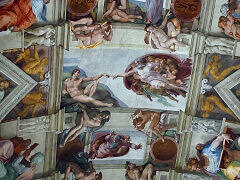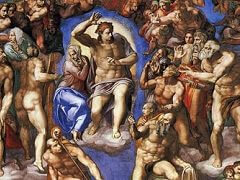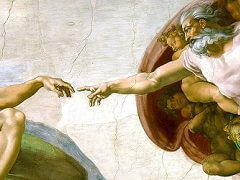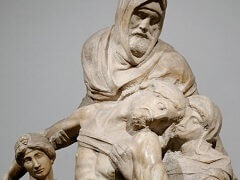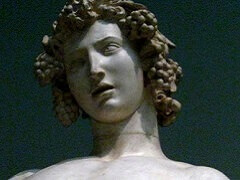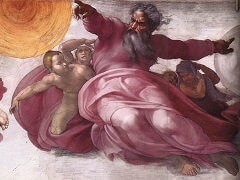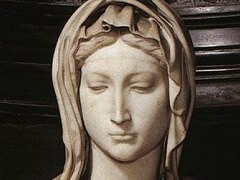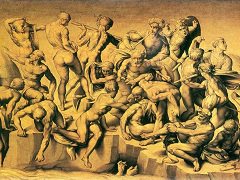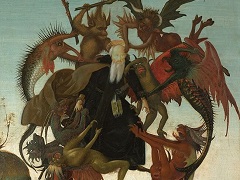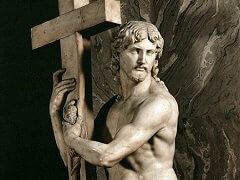Drunkenness of Noah, by Michelangelo
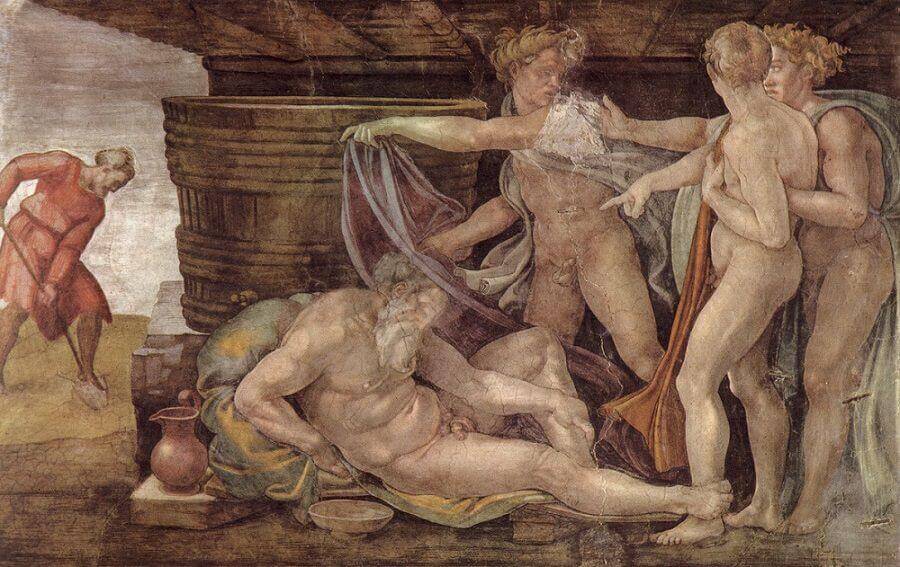
In the first bay of the Sistin Chapel Ceiling the Drunkenness of Noah is represented in the center of the vault: this is an episode that from the time
of Saint Augustine onward was interpreted as the prefiguration of the mocking of Christ. Saint Augustine was also responsible for the tradition that Noah's planting of the vineyard - the scene
depicted in the left background - foreshadowed the incarnation of Christ. The humiliation of the patriarch, caused by the fruit of the vine, alludes to the Word that humiliates itself by
agreeing to become incarnated in the "vineyard" of Israel.
According to Genesis, "Ham saw the nakedness of his father, and told his two brethren who were without. An Shem and Japeth took a garment, and laid it out upon both their shoulders, and went
backward, covered the nakedness of their father, and their faces were backward, and they saw not their father's nakedness."
Michelangelo evidently neglected the chronological sequence of the Noah series, for Noah's offering should have come directly after the Deluge. Instead, Noah asleep and mocked by his sons is the
first fresco that meets the eye as one enters the Chapel through the east door. It occupies a small field between the four ignudi. But the sleeping Patriarch has surely been placed at the end of
the first row of frescoes for some good reason. The degradation of the Patriarch, who resembles a Roman river god, and was yet chosen by God to outlive the Flood and ensure the survival and
redemption of mankind, was due not to an overdose of wine but to human loss of spiritual memory; to the hypnotic sleep of man oblivious to his origin, enacted here by the father of the race.
The sons who stripped and ridiculed him do not know what they are doing and understand neither themselves nor their fate. Noah's devotion and piety pacifies the Father and gives unto God what is
God's. For his sake the Eternal has decided to redeem mankind. If the sons mock their father it is their own shame, not his; it is the fall and the inexorable karma of the race which men in their
blindness neither see nor understand.


